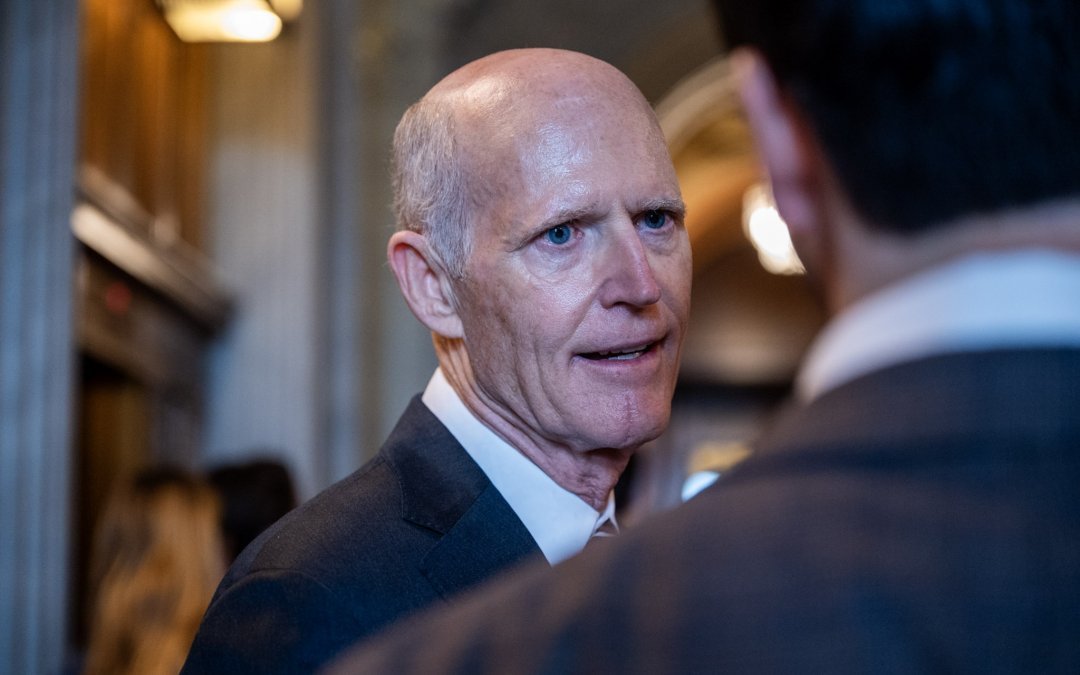WASHINGTON — As Senate Republicans prepare to make good on their end of the shutdown-ending bargain and vote on a measure to address rising health care premiums, some are eyeing a backup plan.
On Saturday, President Donald Trump proposed redirecting the billions spent each year on Affordable Care Act subsidies directly into Americans’ pockets to pay for health care — a move that experts say could actually increase premium costs for many enrollees.
In the same post, Trump renewed calls to “terminate” the ACA, commonly known as Obamacare, but did not elaborate on whether he wants the direct payments to replace the ACA or enhanced subsidies.
“Instead of subsidies to give to the insurance companies — they’re doing well without it — why don’t we just give that subsidy to the American people?” Sen. Markwayne Mullin (R-Okla.) told Medill News Service.
The same day as Trump’s Truth Social post, Sen. Rick Scott (R-Fla.) announced he was drafting a bill that would deposit the funds into tax-advantaged HSA savings accounts, bypassing insurance companies.
“I’m going to put something out and try to start the conversation,” Scott told reporters on Monday.
Scott clarified that Sen. Mike Crapo (R-Idaho) is leading Republicans’ subsidy negotiations, and that Scott’s direct payment bill might not end up as Republicans’ primary plan to lower costs.
Health care experts and Democratic lawmakers were quick to point out that paying Americans directly could destabilize the risk pool — driving up premiums and removing protections for pre-existing conditions.
Timothy Jost, professor emeritus at the Washington and Lee University School of Law, said the Trump-Scott proposal eliminates risk pooling, which could benefit healthier Americans, but would leave sicker ones with serious conditions unable to afford expensive treatment.
“They’re either ignorant or willfully ignorant of the way health insurance works,” Jost said.
Jost added that Scott’s plan to replace insurer subsidies with HSA accounts would disproportionately benefit wealthier individuals and is not a substitute for quality insurance.
Sen. Patty Murray (D-Wash.), a member of the Senate Committee on Health, Education, Labor and Pensions, said in a Sunday floor speech that Republicans’ new attempt to repeal the ACA risks increasing costs as Americans struggle to pay for health care.
“They fired up the old bad ideas machine to try and find a new way to repeal the ACA,” Murray said.
Sen. Lindsey Graham (R-S.C.) broadly criticized the ACA on Monday, telling reporters that Republicans would eventually present a “full-fledged replacement” for the ACA subsidies.
Sen. Jim Justice (R-W. Va.) agreed, telling Medill News Service the subsidies needed to expire and that Republicans would work on another proposal after the government fully reopens. In the meantime, however, Justice is backing Trump and Scott’s direct payment proposal.
“It may very well have real merit, because we need to be helping our folks rather than helping our insurance companies,” Justice said.
Sen. Catherine Cortez Masto (D-Nev.) told Medill News Service on Monday that she had not reviewed Trump’s plan yet. However, Sen. Adam Schiff (D-Calif.) blasted the proposal in a Sunday interview with ABC, arguing that the proposal would effectively undermine the protections guaranteed by the ACA.
Trump’s proposal seems to be picking up steam among Republican lawmakers — Sen. Thom Tillis (R-N.C.) told Medill News Service he supported the plan, adding that he also supports a one-year extension of the subsidies in the meantime.
“The only way it works is if it’s a bipartisan plan,” Tillis said.

